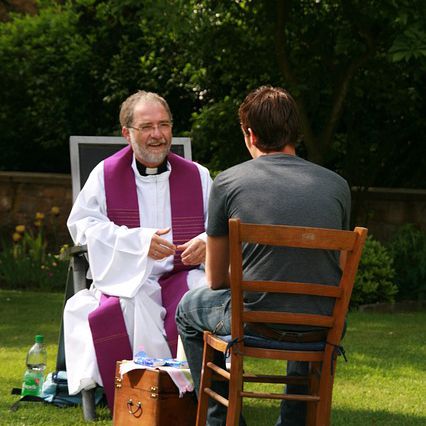
If you are asking, when a person approaches a priest to have confession, does the Canon Law provide any provision for the priest to refuse him/her, the answer is no, unless the priest lacks the necessary faculty or is under suspension.
However, Canon Law does stipulate that priests have a responsibility to provide regular and adequate time for the faithful to have access to the sacrament of confession, as well as providing for the special needs related to this sacrament. In the Directory of Seminary Formation, it urges that priestly spirituality should nurture them to place the needs of the parishioners ahead of their own conveniences. When a faithful asks for the sacrament, unless there are really some other pressing matters, the priest should respond as soon as possible, or at least provide the faithful with the next available time.
The only examples I can think of where a priest may refuse confession are all unusual cases: like someone with serious mental illness, someone intentional on causing disturbance, or those suffering with scrupulosity. This last case I usually would not refuse, unless the person has just been to confession on the same day and he/she has only committed some trivial sins. If I hear his/her confession, I would actually be not helping the person, but aggravating his/her scrupulosity. Other situations are mainly a question of availability, like I have to start mass, or go to a meeting, or I really need to take a break. In these cases, the priest should tell the person when to come back.
Even if the faithful is in an irregular marriage or other situations which precludes them from receiving the sacrament validly, if they come, the priest should still see them; at least allow them to talk about their problems, give them some counselling, and a blessing.


